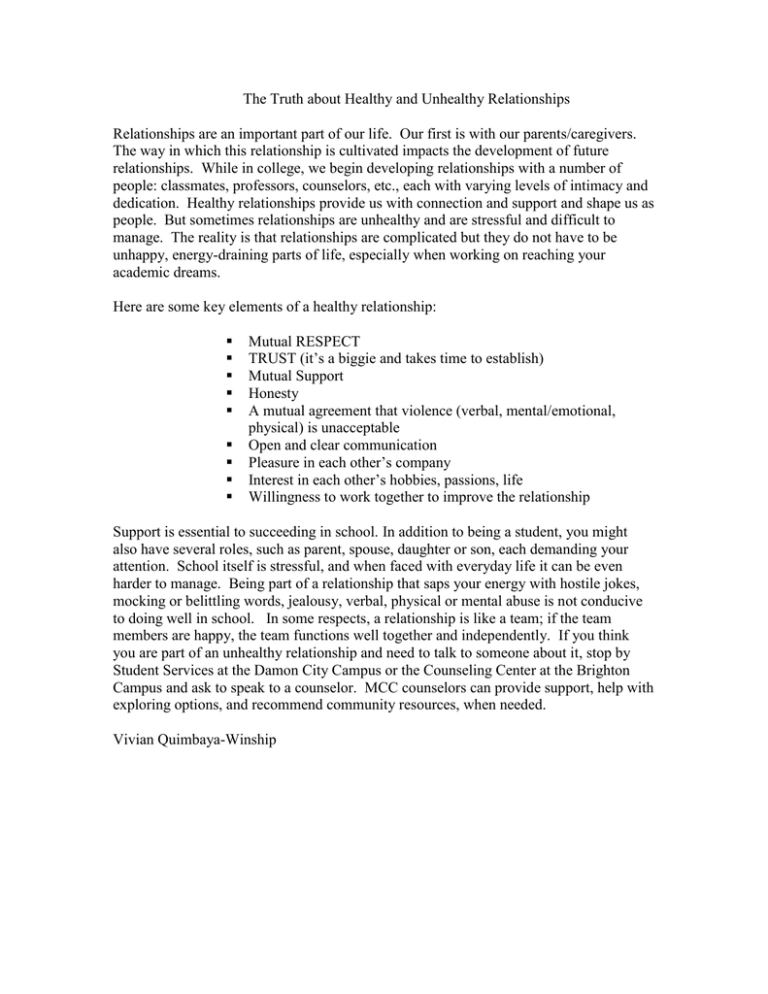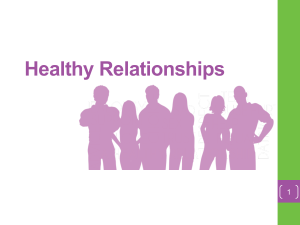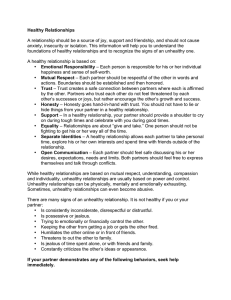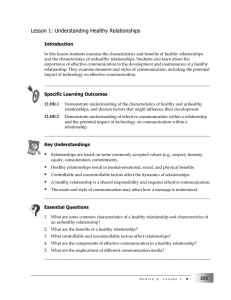The Truth about Healthy and Unhealthy Relationships
advertisement

The Truth about Healthy and Unhealthy Relationships Relationships are an important part of our life. Our first is with our parents/caregivers. The way in which this relationship is cultivated impacts the development of future relationships. While in college, we begin developing relationships with a number of people: classmates, professors, counselors, etc., each with varying levels of intimacy and dedication. Healthy relationships provide us with connection and support and shape us as people. But sometimes relationships are unhealthy and are stressful and difficult to manage. The reality is that relationships are complicated but they do not have to be unhappy, energy-draining parts of life, especially when working on reaching your academic dreams. Here are some key elements of a healthy relationship: Mutual RESPECT TRUST (it’s a biggie and takes time to establish) Mutual Support Honesty A mutual agreement that violence (verbal, mental/emotional, physical) is unacceptable Open and clear communication Pleasure in each other’s company Interest in each other’s hobbies, passions, life Willingness to work together to improve the relationship Support is essential to succeeding in school. In addition to being a student, you might also have several roles, such as parent, spouse, daughter or son, each demanding your attention. School itself is stressful, and when faced with everyday life it can be even harder to manage. Being part of a relationship that saps your energy with hostile jokes, mocking or belittling words, jealousy, verbal, physical or mental abuse is not conducive to doing well in school. In some respects, a relationship is like a team; if the team members are happy, the team functions well together and independently. If you think you are part of an unhealthy relationship and need to talk to someone about it, stop by Student Services at the Damon City Campus or the Counseling Center at the Brighton Campus and ask to speak to a counselor. MCC counselors can provide support, help with exploring options, and recommend community resources, when needed. Vivian Quimbaya-Winship


